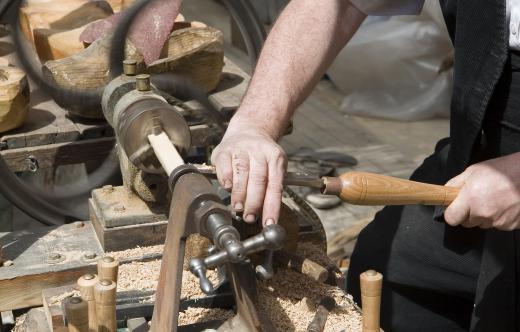Boring is a mechanical process that makes existing holes in a solid material larger or deeper through the use of specialized tools such as lathes, drills and boring bars. In most cases, boring bars are used in combination with a lathe to make holes that are more accurate in terms of placement and measurement. It can have a number of different diameters to create the required mechanical alterations to the material that is being bored into.
A boring bar is usually attached to some sort of lathe or similar machine. A lathe has many uses, but for boring, it is mainly used for turning the bars. Boring with a boring bar makes a hole that is usually much more accurate than a hole that is produced with a handheld drill. The accuracy comes from the fact that the lathe is typically attached to a surface that is not easily moved, so operator error is greatly reduced.

The boring bar itself is typically made of a very hard material, such as steel or carbide. It is cylindrical like a drill bit, but does not have the same thread pattern. Boring bars may also have a shallow thread that does not progress down their length. This thread pattern can create more vibrations through the boring bar as compared to a drill bit, which creates a tighter seal in the interior of the material being bored.
Boring bars are typically longer than drill bits, which creates a larger surface area to initiate vibrations. This means that the boring bar will vibrate more than a drill bit does. When using boring bars, greater attention to detail is required from the machine operator to control for these vibrations.
Tapered holes can also be produced through the use of boring bars by changing the rotation of the lathe. The cutting tool must create an angle at the axis of rotation to create that taper effect in the hole. Changing the angle adjusts the direction of the boring bar, which can be used to make holes that are tapered. In most cases, boring bars are used in manufacturing and tooling machines, but they can also be used for hobbyist manufacturing and automobile restoration.
